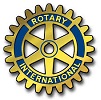MEDICAL CONCERNS AND CONDITIONS WITH DOWN SYNDROME
J.L.H Down made observations on a group of similarly affected children in 1866, published in Clinical Lecture Reports, London Hospital. Since then it has been recognised that Down Syndrome has an incidence of 1:1750 newborns throughout the world. This makes the condition the most common pattern of malformation in man.
The diagnosis of Down Syndrome can generally be made shortly after birth, 10 features are set forth by B. Hall and these are Hypotonia, poor moro reflex, hyperextensibility of joints, excess skin on the back of the neck, flat facial profile, slanted palpebal fissures, anomalous auricles, dysplasia of pelvis, dysplasia of the mid-phalanx of fifth finger and simian crease. At least 4 of these are found in 100% of affected newborns and 6 or more of these features are found in 89% of newborns with Down Syndrome.
The serious medical concerns are mental development, congenitial heart disease, tendencyto develop leukaemia and duodenal atresia, hypothyroidism and risks of recurrence in subsequent pregnancies. The natural history of babies with Down Syndrome will also be discussed
Breastfeeding the baby with Down Syndrome
On learning the diagnosis, Down Syndrome looms very large in the parent’s minds and perceptions and it may take about 1 year before parents accept the diagosis in their baby. However, breastfeeding the baby with Down Syndrome, allows the parents to bond with the baby, as a person first, and the Down Syndrome comes second in their considerations. There is no doubt that breastfeeding has unique advantages for the infant and maternal health for babies with Down Syndrome, as for other children. These advantages of breastfeeding are discussed.
A baby with Down Syndrome has special problems in breastfeeding and the solutions to these breasfeeding problems are discussed.
Parents Reflections and Messages
Having a baby diagnosed with Down Syndrome is a most shocking. frightening and anxious experience for new parents. Many parents on reflection had rated the experience on learning about the the diagnosis as very negative. Doctors need to be more sensitive and improve the way the diagnosis is conveyed to the parents. However, with time and patience, parents begin to love and treasure their son or daughter as an individual first and the Down Syndrome later. They realize that their child can achieve many things even if they do it slower than other chidren.
My message to parents of a newborn with Down Syndrome, is to breastfeed fully for 2 years and beyond, adding solid foods at the age of 6 months. Do not give up even if the early weeks seem very hard, get help and support early to breastfeed. The relationship, advantages and the health you give your child will last a lifetime.



